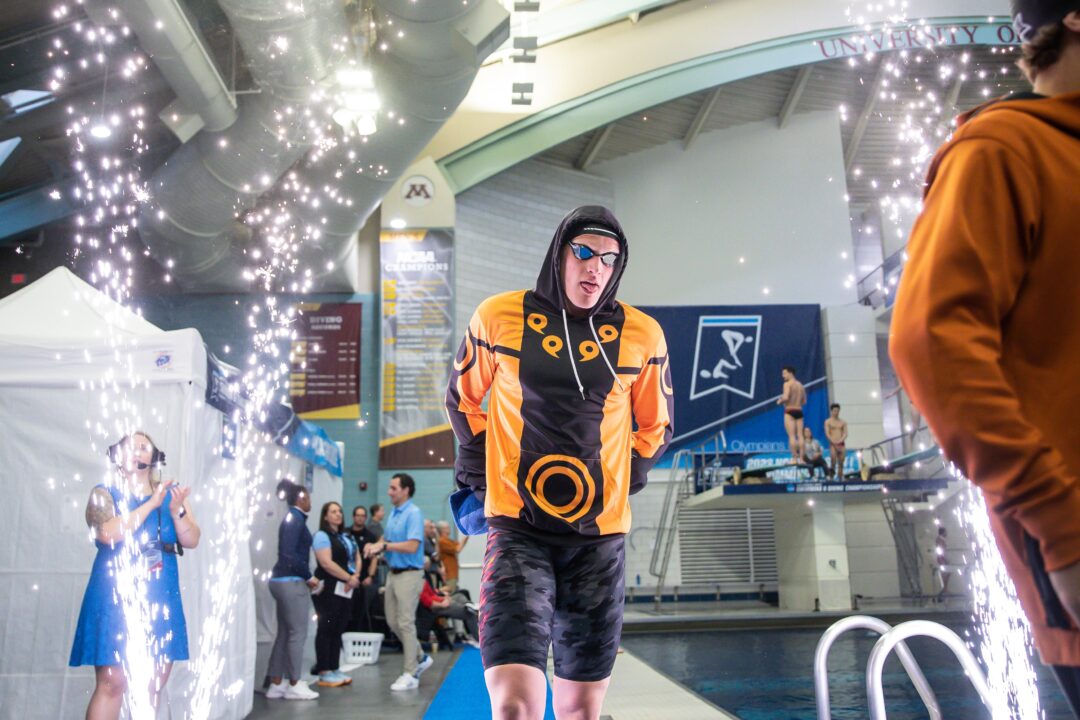Former Arizona State University swimmer Grant House scored a huge victory in his multi-billion dollar, class-action lawsuit against the NCAA seeking backpay for name, image, and likeness (NIL) and a slice of broadcast revenue.
U.S. District Judge Claudia Wilken granted House and two other plaintiffs class-action status on Friday, meaning the NCAA could be forced to pay damages to thousands of Power Five athletes dating back to 2016. She wrote that she found “ample support for (the) plaintiffs’ assumption that student-athletes NIL in broadcasts have value, and that their value is at least ten percent of the revenues of Defendants’ broadcasting contracts.”
More than 6,000 football and men’s basketball players would be entitled to a share of television-rights money and 7,000 athletes in other sports would be eligible for damages related to social media earnings if the plaintiffs keep their winning streak rolling at a jury trial set for January of 2025.
Wilkens’ ruling on Friday “potentially means that student athletes will share broadcast revenues, ticket sales, and endorsement deals,” Steve Berman, one of House’s attorneys, told USA Today. “It’s a huge potential change in the NCAA and student-athletes relationship.”
The NCAA released a statement arguing that NIL is highly specific and pointing out that damages money would be distributed overwhelmingly to male athletes. Along with certifying the damages classes in House v. NCAA, Wilken also excluded one of the NCAA’s expert witnesses who testified on the Title IX impact of revenue sharing.
An economic expert for the plaintiffs made the case that a free market without NCAA-rules restrictions would have resulted in Power Five conference competing with each other for football and basketball players by offering them money for the use of their NIL in broadcasts. “… That would have enabled the conferences to maximize their broadcast revenues,” University of San Francisco sports management professor Daniel Rascher said.
House filed the lawsuit back in 2020, over a year before the NCAA lifted its restrictions on college athletes’ ability to profit off their publicity rights. The NCAA has claimed that current and former college athletes are collectively asking for more than $1.4 billion in damages — an amount that might not even factor in yet the tripling of damages that happens in successful antitrust cases.
The NCAA has its hands full right now. Next week, the National Labor Relations Board (NLRB) is looking into whether the Pac-12 and USC have unlawfully deemed college athletes as “student-athletes” instead of employees. Three Olympic champion swimmers went to Capitol Hill over the summer to lobby against a California Assembly bill that later stalled in the state senate. Meanwhile, men’s basketball players at Dartmouth are attempting to unionize and Johnson v. NCAA is still moving through the courts.
Last month, new NCAA president Charlie Baker asked Congress to “codify current regulatory guidance into law by granting student-athletes special status that would affirm they are not employees.” Notre Dame athletic director Jack Swarbrick supported the idea of college athletes collectively bargaining with the NCAA and/or conferences without those athletes being considered employees, though he acknowledged that’s currently impossible under U.S. labor law.

When your time in the ‘limelight” starts to dwindle and the appetite to feed your ego is still just as strong, you seek to be the one to decimate college athletics. College athletics have given and continue to give athletes the ability and means to receive a college education and compete at the highest level. An ego bigger than a house will only feed the few.
Let me get this straight: They get a share of the money, full ride scholarships through college, and a “recruited athlete” path through the most competitive elite colleges that normal high achieving non athletes have only 5% chance of getting in, and have to actually pay for? Hmm… maybe it’s time I get my hire Phelps to train my kids, then maybe I don’t have to worry about where they go and how will I pay for their college tuitions.
If Grant House gets reparations before me I’ll be upset
Grant House has a Joseph Schooling pre Dressel days esque ego. He was a fantastic collegiate swimmer but his real talent is magic. I have no idea how bro got 8 years of eligibility.
Grant House is going to get paid big money because he is one of the three lead plaintiffs. He is also going to end mens college swimming if he wins. This is not a good thing for anyone other than Grant House.
What a farce – Do you really think TV networks would have engaged in a “bidding war” for the right to broadcast Grant House’s swim races? This case is just a waste of money.
Never underestimate the delusions of a narcissist
Hey he’s got 7,999 instagram followers! And some of them aren’t bots or his mom!
Most of this sounds like nonsense to me. Athletes are entitled to a share of broadcast revenue? For what? Is the point that if you show someone playing a sport that is broadcast or streamed, they are entitled to money? It’s absurd. Student-athletes are just that–they are not “employees.”
That’s why it was good that CA law makers did not pass that revenue sharing bill. It was supported by a bunch of lawmakers who were college athletes. Had it passed, many of the sports that aren’t revenue generating will probably be gone.
Don’t spend all your swimming broadcast revenues in one place!
You win a cut of the swimming revenue – here is your bill please cover this much of the losses